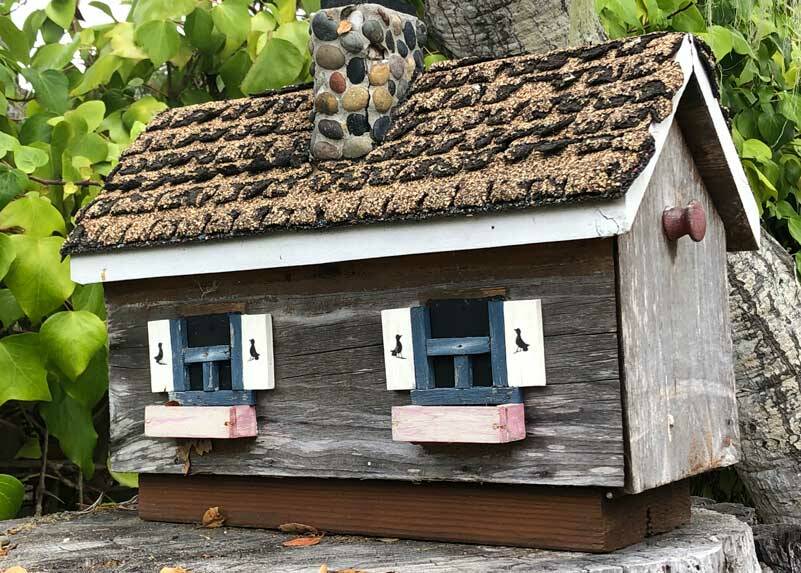By Morf Morford, Tacoma Daily Index
If you thought the housing market in 2022 was a fever-dream induced by delusions brought about by a pandemic, historically low interest rates (at least for most of the year), stunted housing inventory paired with pent-up demand and, of course, the first war in Europe in the lifetime of most of us, stay tuned for what is coming in 2023.
For most of 2022, most housing was over-priced. And not just the common price-gouging in prime markets kind of over-priced. The vast majority of homes in 2022 were absurdly, ridiculously and deliriously over-priced – even in dubious and questionable neighborhoods.
That has all changed. Sort of. Probably. In some places.
There’s an old saying that “All politics is local” – but it’s even more true that all housing is local.
In 2022 hedge funds and foreign investors saw the profit projections in the real estate market and bought vast numbers of properties – even, in several cases, entire housing developments – in many deals these were purchased sight unseen.
Housing might be local, but not all real estate deals are. One report showed that one in seven home purchases across the USA was by an investment firm of some kind – not a potential home owner/resident.
I know of one area of prime real estate where virtually all of the best properties were purchased by foreign investors who never saw them – and probably never will – with the sole intent to keep assets beyond the reach of their own government with no intent to use, or even sell, those properties for many years.
These “invisible” investors impact the market dramatically – almost always in negative ways; they limit supply (which is already severely limited), keep potential buyers out of the market and, perhaps worst of all, they often defer or avoid entirely, essential maintenance, leaving valued properties vulnerable to decay, rodent infestations, vandalism, squatters and more.
The price is (or isn’t) right
In 2021 and early 2022, many potential home sellers listed their homes for vastly more than they were worth.
To put it mildly, this is a terrible home selling strategy. The longer it sits unsold, the more likely buyers will start to believe – or imagine – that something is terribly wrong with the house.
In other words…
Know your home’s true value
Don’t come up with some imaginary number for your asking price.
Look at similar properties and consider any actual liabilities or exceptional qualities of your property.
Not everyone is looking for the same thing. Not everyone will appreciate the special touches you’ve added, and most importantly, you only need one buyer. Selling is not a popularity contest. You are looking for the fit, the one match that works for everyone – not the best of category.
Where now?
Even by January of 2023, it is all too apparent that the housing market is experiencing cross currents from all directions. Interest rates are jumping, major companies in the Puget Sound area, from Amazon to Microsoft and Salesforce are laying off by the thousands, and thanks to explosive growth in real estate prices, property tax evaluations have grown dramatically.
In short, home owners, and investors, and “flippers” are under pressure from all sides.
We’ve seen this before
One of enduring promises of real estate is that prices always go up.
For better or worse, that is not true.
Home prices, and everything related to them, from interest rates to market demand to labor costs and building materials are in flux – perhaps as we have never seen them before.
It’s not a bubble, but…
Homeowners who bought in the past couple years find themselves in an expensive, over-market value home that is rapidly depreciating, and selling would mean losing money – even by short-selling on a huge mortgage.
Downsizing, a possibility in more stable times, is a losing proposition with ever-rising interest rates.
House prices will almost certainly drop, which is welcome news for many. But not all.
More houses will go on the market. Construction projects begun a couple years ago are nearing completion. Inventory will increase, and in many markets, has already.
Some who bought a while back and resisted the urge to upgrade, and have enough equity to ride it out, will stay where they are. Others will convert to rentals to stay in their homes. That will add some rental units to the market but not necessarily in the “affordable housing” range.
Anything we buy over a thirty-year (or more) time frame is likely to include multiple variables. The past few years have given us, already, a lifetime of changes and challenges.
In short, the real estate market in 2023 will be another wild ride.






